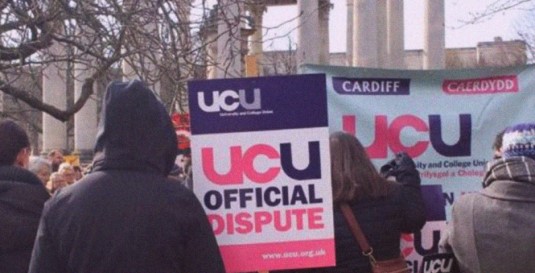
1. When it's discussed, there appears to be a default assumption that marking is an inessential part of an academic's job. That it, like open days at weekends, are voluntary and outside of contract. Perhaps this was the case once upon a time, but now it's integral to the academic workload. It's as much part of expectations as teaching and responding to student queries. As we have seen in the past, when marking boycotts were live it gave universities carte blanche to deduct pay, in some cases 100% for the duration. If this is the case, we might as well take indefinite strike action.
2. Like all industrial action, whether strikes or action short of a strike, they're going to be disruptive. The current ban on working outside of hours, a form of working to rule, is certainly that. The employers depend on our using our own time to get tasks done. For example, it's routine for time off over Christmas be dedicated to marking, and of ensuring everything is ready for the beginning of the new semester. If marking can't be done without eating into free time, then it's showing that our workloads are too big - which is partly point of the exercise. And as most institutions have strict deadlines for student feedback and grade entry, keeping marking to working hours does throw the university timetables into chaos with knock on effects for teaching, graduation, etc. A boycott is largely surplus to requirements.
3. Our chief allies in the confrontation with the employers are the students. We're the ones who teach, encourage, support. We're the every day faces of our institutions, dispense the knowledge and care about the university experience. Can the same be said for the senior manager who sees their current situation as a stepping stone to a bigger job and fatter salary elsewhere? Crucial to our arguments about pay and workload is how worsening conditions for us degrades students' learning conditions. The advantage with working to rule, sticking to hours, and the withdrawal of labour is its obvious the target is the employer. And this allows for real alliances to be built between staff and students, considering how wasteful and misdirected a lot of HE spending is. Have library budgets, for example, gone up in line with the increase in tuition fees since their introduction, or do we find money frittered on boondoggle buildings and handsome salaries for university executives? There is a commonality of interests, and a shared opponent. Marking boycotts, however, almost appear designed to drive a wedge between academics and students. Many students would accept late marks as part of a refusal to work in free time, but to deprive them of marks altogether appears to hurt them more than any disruption it causes the institution. All of a sudden, the student appears to be the target - almost as if lecturing staff are protesting against them. Our tactics should be about securing the support of those we teach, not making management's business-as-usual seem more reasonable than our actions
Image Credit
2 comments:
Hi George, I've not approved your comment owing to the personal details you left in there. I'm going to look into reinstating the email facility over the weekend.
An excellent post, Phil, that understands and expresses the point of class struggle. We know, and we need to be clear, that it is the state that has pressed universities to reconstruct themselves as units in a key business sector in the economy.
We need through strike action to say a big fat NO, and try, just a little, to reassert the central role of students and academic staff as the university. The rest is their support.
Post a Comment